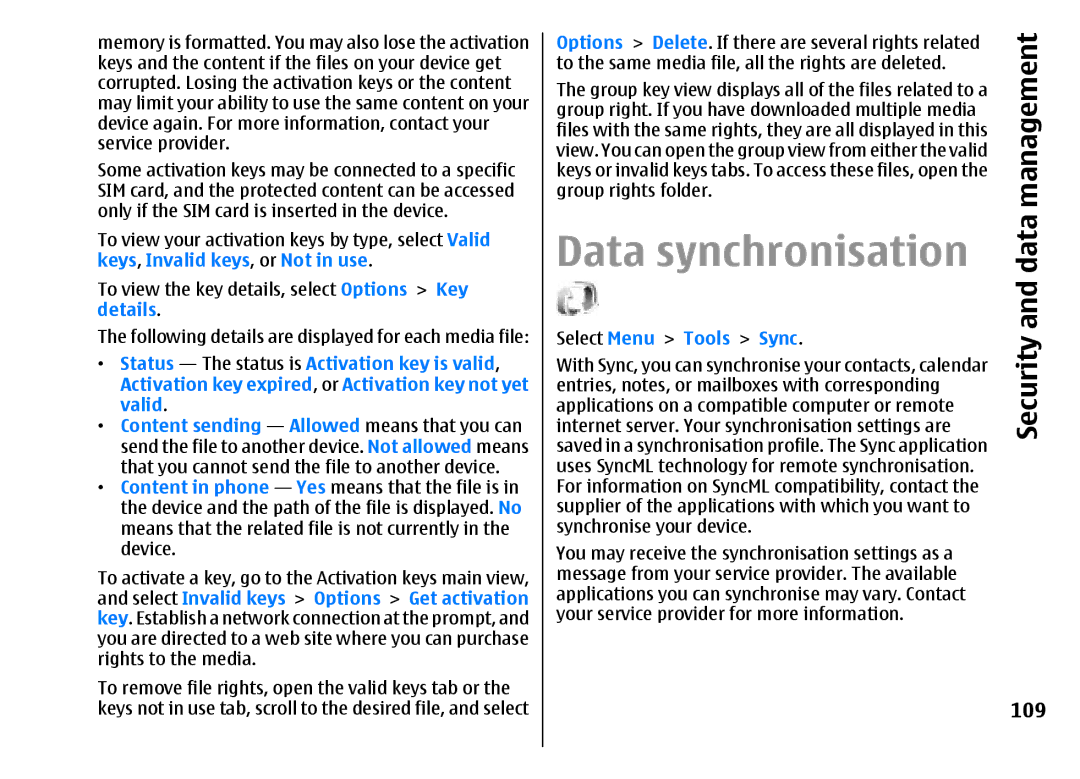memory is formatted. You may also lose the activation keys and the content if the files on your device get corrupted. Losing the activation keys or the content may limit your ability to use the same content on your device again. For more information, contact your service provider.
Some activation keys may be connected to a specific SIM card, and the protected content can be accessed only if the SIM card is inserted in the device.
To view your activation keys by type, select Valid keys, Invalid keys, or Not in use.
To view the key details, select Options > Key details.
The following details are displayed for each media file:
•Status — The status is Activation key is valid, Activation key expired, or Activation key not yet valid.
•Content sending — Allowed means that you can send the file to another device. Not allowed means that you cannot send the file to another device.
•Content in phone — Yes means that the file is in the device and the path of the file is displayed. No means that the related file is not currently in the device.
To activate a key, go to the Activation keys main view, and select Invalid keys > Options > Get activation key. Establish a network connection at the prompt, and you are directed to a web site where you can purchase rights to the media.
To remove file rights, open the valid keys tab or the keys not in use tab, scroll to the desired file, and select
Options > Delete. If there are several rights related | management |
group rights folder. | |
to the same media file, all the rights are deleted. |
|
The group key view displays all of the files related to a |
|
group right. If you have downloaded multiple media |
|
files with the same rights, they are all displayed in this |
|
view. You can open the group view from either the valid |
|
keys or invalid keys tabs. To access these files, open the |
|
Data synchronisation | data | |
Select Menu > Tools > Sync. | and | |
Security | ||
With Sync, you can synchronise your contacts, calendar | ||
entries, notes, or mailboxes with corresponding | ||
applications on a compatible computer or remote | ||
internet server. Your synchronisation settings are | ||
saved in a synchronisation profile. The Sync application |
| |
uses SyncML technology for remote synchronisation. |
| |
For information on SyncML compatibility, contact the |
| |
supplier of the applications with which you want to |
| |
synchronise your device. |
| |
You may receive the synchronisation settings as a |
| |
message from your service provider. The available |
| |
applications you can synchronise may vary. Contact |
| |
your service provider for more information. |
| |
| 109 |
